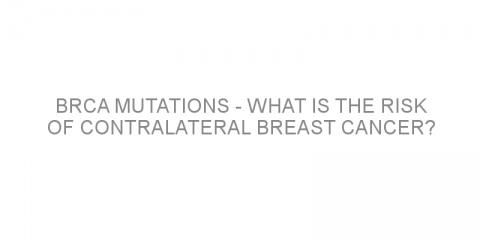In a nutshell This review summarized guidelines for the active surveillance of localized prostate cancer. The authors reported that active surveillance is a suitable strategy for the management of most low-risk prostate cancers provided appropriate monitoring protocols are followed. Some background Active surveillance refers to actively monitoring...
Read MoreCurrent stage?-Stage I Posts on Medivizor
Surgery compared to radiation therapy – survival benefits in prostate cancer
In a nutshell The authors aimed to determine overall mortality (patients who died after treatment) and prostate-specific mortality (patients who died from prostate cancer after treatment) in patients who underwent prostate surgery or radiation to treat localized (confined to the prostate) prostate cancer. The authors...
Read MoreBiophosphonates in bone loss management and breast cancer recurrence
In a nutshell The authors aimed to provide guidelines for the use of bisphosphonates (drugs used to slow or prevent bone damage) in early breast cancer. The authors concluded that bisphosphonates should be used as part of a prevention routine in at-risk patients to prevent bone loss as well as cancer recurrence and spread. Some background Patients...
Read MoreCan adding bevacizumab to chemotherapy before surgery improve response?
In a nutshell The authors aimed to evaluate the effectiveness and safety of combining bevacizumab (Avastin) and chemotherapy prior to surgery in breast cancer. This study showed that adding bevacizumab to chemotherapy increased response rates among women with non-metastatic (has not spread) breast cancer. Some background...
Read MoreWhat effect does weight loss have on bone health in women with breast cancer?
In a nutshell This study investigated the associations of weight loss with bone mineral density and bone turnover in overweight postmenopausal breast cancer survivors. The study concluded that weight loss did not have a negative effect on bone health. Some background Chemotherapy may cause some patients to go through menopause by disrupting female...
Read MoreBRCA mutations – What is the risk of contralateral breast cancer?
In a nutshell This study looked at the risk of developing contralateral breast cancer (CBC) in patients with or without BRCA mutations. The study concluded that age at the time of first cancer diagnosis is a strong risk factor for CBC in patients with BRCA. Some background Contralateral breast cancer (CBC) is the development of a second new breast...
Read MorePredictors of local recurrence of rectal cancer after surgery
In a nutshell This study investigated whether certain markers were associated with local recurrence or survival post-surgery in early stage colorectal cancer patients. This trial determined that certain factors were associated with a higher risk of local recurrence (including male gender and current alcohol use) and surivival times (including age of...
Read MoreA better way to preserve continence? A new technique for prostatectomy
In a nutshell This study examined the effects of total anatomical reconstruction (TAR) during robot-assisted radical prostatectomy on recovery of urinary continence. Some background Urinary incontinence is a potential side effect of radical prostatectomy (removal of the prostate gland) that can impair a patient’s quality of life...
Read MoreLooking for breast cancer patients with larger breast sizes to test a radiation technique
In a nutshell The aim of this clinical trial recruiting in British Columbia and Ontario, Canada, is to determine the effectiveness of “intensity modulated radiation therapy” (IMRT) in large-breasted women lying face down (prone) compared to those lying face up (supine). The main outcome will be the rate of moist...
Read MoreNew type of surgery improves survival without disease in colon cancer patients
In a nutshell This study compared the disease-free survival rates of patients who had a complete mesocolic excision with patients who had conventional surgery for treatment of colon cancer. Some background Patients with rectal cancer have higher survival rates than colon cancer patients. This is in part due to the type of surgery carried out. Many...
Read More“The sunshine vitamin” (vitamin D) and colorectal cancer survival rates
In a nutshell This study investigated whether colorectal cancer survival rates were influenced by levels of vitamin D in the body. Some background The rate of occurrence of colorectal cancer (CRC) varies greatly among different populations of the world. This could be due in part to variable levels of vitamin D in the body. Dietary intake of...
Read MorePTEN loss and prostate cancer tumor upgrading
In a nutshell The authors determined the effect of PTEN in tumor upgrading in prostate cancer patients. Some background Prostate surgery is a common treatment in prostate cancer. It involves surgically removing the prostate gland. The PTEN gene acts as a tumor supressor (protects normal cells from progressing to...
Read More














